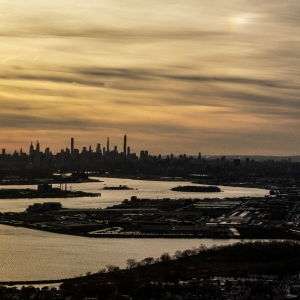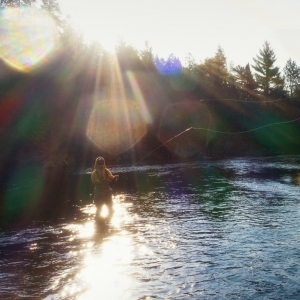The Stream, November 2, 2021: As Temperatures In Greece Continue To Rise, Farmers and Fishermen Suffer The Most
YOUR GLOBAL RUNDOWN
- Climate catastrophes are threatening the rivers Amazonian Indigenous tribes depend on.
- Members of Congress from Oregon are asking the federal government to declare an emergency declaration as the state’s salmon population continues to die off in warming waters.
- Climate change is also warming waters in Greek wetlands, threatening the livelihoods of fishermen.
- The Great Lakes region will spend billions repairing coastal damage as waters continue to fluctuate to dangerous levels.
Drought, floods, and wildfires are destroying the crops of Turkish farmers.
“This has surpassed the level of concern, it is turning into a catastrophe.” – The Diyarbakir Agricultural Chamber Chairman Abdulsamet Ucaman. Reuters reports climate change is threatening the livelihoods of farmers in Turkey. Aside from devastating drought in provinces like Diyarbakir, Turkey was also hit by flash floods in the Black Sea region, and massive wildfires tore through southern regions last summer.
IN RECENT WATER NEWS
In Case You Missed It:
HotSpots H2O: The Philippines’ Largest Wetland Faces Prospect of Drilling – The newly autonomous Bangsamoro government has invited investors to pursue drilling projects in a marsh critical for both Indigenous peoples and wildlife.
What’s Up With Water – November 1, 2021 – This week’s episode covers the start of COP26 in Glasgow, a political power shift in Sudan that could fuel tensions over a major dam in the region, and Circle of Blue’s coverage of state and local ballot measures in the United States related to water.
Amazon Tribes Threatened By Climate Catastrophes
Climate disasters like floods, droughts, and wildfires are threatening Indigenous populations in the Amazon. The Financial Times reports that Indigenous communities, like the Piratapuia tribe living in northwest Brazil, rely on the country’s rivers for fishing and nourishing crops. Rivers across South America are threatened by climate disasters, endangering the tribes’ livelihoods and cultures.
TODAY’S TOP WATER STORIES, TOLD IN NUMBERS
3 YEARS
Members of Oregon’s congressional delegation are asking the federal government to approve a “catastrophic regional fishery disaster declaration” for commercial salmon fisher. According to a letter from U.S. senators and representatives from Oregon, drought has reduced the scale of Chinook salmon runs over the past three years, the Willamette Week reports. In 2013, the average value of the salmon was $6.3 million. In 2020, the value had more than halved. A disaster declaration could trigger relief funds from Congress, which lawmakers say communities desperately need.
$245 MILLION
Coastal communities in Wisconsin will spend more than $245 million to protect Great Lakes shorelines as climate change continues to dramatically shift water levels, according to Wisconsin Public Radio. Across the entire Great Lakes region, a recent surveyed estimated communities will spend more than $2 billion over the next five years combating damage caused by flooding, erosion, and other damage caused by high and low waters.
- In context: The Great Lakes region is frequently touted as one of the most climate-resilient places in the U.S., in no small part because of its enviable water resources. But climate change also threatens water quality, availability, and aging water infrastructure by exposing existing vulnerabilities and creating new ones. In the Great Lakes: Ready or Not series, members of the Great Lakes News Collaborative explore what it may take to prepare the Great lakes region for the future climatologists say we can expect.
ON THE RADAR
Climate change is warming waters in Greek wetlands, threatening the way of life for local fishermen. Fishermen like Yiannis Theodoropoulos, who lives in a wooden shack on stilts in the middle of a lagoon in southwest Greece, are struggling to catch fish due to incessant heatwaves. Temperatures across Greece are rising annually. A report from 2011 by the Committee for the Study of Effects of Climate Change predicts that the country will experience 35-40 more days of heatwaves each year by the end of the century. The report, according to Al Jazeera, says that agriculture and fishing will suffer more than other sectors.
Jane is a Communications Associate for Circle of Blue. She writes The Stream and has covered domestic and international water issues for Circle of Blue. She is a recent graduate of Grand Valley State University, where she studied Multimedia Journalism and Women, Gender and Sexuality Studies. During her time at Grand Valley, she was the host of the Community Service Learning Center podcast Be the Change. Currently based in Grand Rapids, Michigan, Jane enjoys listening to music, reading and spending time outdoors.






Leave a Reply
Want to join the discussion?Feel free to contribute!